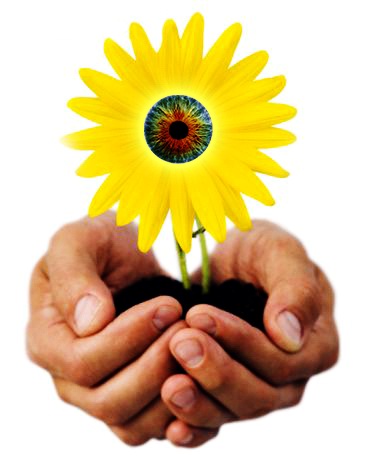
Help today because
Tomorrow you may be the one who needs more helping!
1. What is corneal blindness?
Cornea, the main focusing part, is the clear front surface of the eye. Like a window, it allows light to enter the eye. Vision could be markedly reduced or lost if the cornea becomes cloudy or scarred. This condition is known as corneal blindness.
2. What are the causes of corneal blindness?
Injuries to the eye, birth defects, malnutrition, infections, chemical burns, congenital disorders and complications of eye surgery.
3. Who can donate eyes?
Eye donors could be of any age group or sex. Cataract, poor eye sight and old age do not prohibit you from becoming a donor. People who use spectacles, diabetics, high blood pressure patients, asthma patients and those without communicable diseases can donate their eyes. Persons with AIDS, Hepatitis B and C, Rabies, Septicaemia, acute leukemia (Blood cancer), Tetanus, Cholera, and infectious diseases like Meningitis and Encephalitis cannot donate their eyes.
4. What is an eye donation?
Donating your eyes; after your death, a blind person can see with your eyes.
5. What is an eye bank?
An eye bank is a non-profit organization that obtains, medically evaluates, and distributes donated eyes for use in cornea transplants, scleral reconstruction, research, and education.
6. Why should eyes be donated?
Donating human eyes and corneal tissue help preserve and restore sight and are used for transplantation, research, and education.
7. How soon after donation must a cornea be transplanted?
Cornea transplant is usually performed within 4 days of donation, depending upon the method of cornea preservation.
8. How do research and education benefit from eye donation?
In addition to corneas used for surgical procedures, more than 35,000 eyes are used annually for research and education. Research on glaucoma, retinal disease, complications of diabetes and other sight disorders benefit from eye donations because many eye problems cannot be simulated; only human eyes can be used. These studies help researchers find out the causes and effects of specific eye conditions and lead to new treatments and cures.
9. Are there religious conflicts to eye, organ or tissue donation?
No. Donation is a gift of life or sight to others. As such, eye, organ and tissue donations are consistent with the beliefs and attitudes of all major religions.
10. Is there any delay in funeral arrangements?
No. The eye tissue is procured within hours of death, so families may proceed with funeral arrangements as planned.
11. Will eye donation affect the appearance of the donor?
No. Great care is taken to preserve the appearance of the donor. No one will be able to notice that eyes have been donated. Families may even hold a viewing and have an open casket ceremony.
12. Will the donor’s family pay or receive any fees?
No. It is illegal to buy and sell human eyes, organs and tissues. Any costs associated with eye procurement are absorbed by the eye bank.
13. Will the recipients be told the identity of the donor?
No. The donor’s anonymity is strictly preserved by law.
14. What are the benefits to a donor’s family?
In addition to fulfilling your loved one’s wishes, donation can offer comfort to a grieving family. Just knowing that a small part of our loved one is going in life, helping someone see this world is a consolation, something to hold on to in times of sorrow.
 Eye Donation FAQs
Eye Donation FAQs